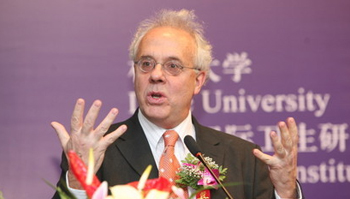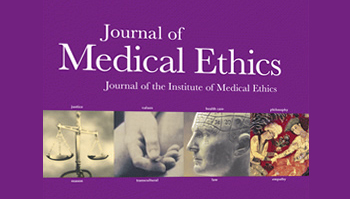Researchers identify a mechanism that stops progression of abnormal cells into cancer
Researchers from Boston University School of Medicine (BUSM) report that a tumour suppressor pathway, called the Hippo pathway, is responsible for sensing abnormal chromosome numbers in cells and triggering cell cycle arrest, thus preventing progression into cancer.
Although the link between abnormal cells and tumour suppressor pathways—like that mediated by the well known p53 gene—has been firmly established, the critical steps in between are not well understood.
According to the authors, whose work appears in Cell, this work completes at least one of the missing links.
Normal human cells contain 23 pairs of chromosomes, but this number doubles to 46 pairs as a cell prepares to divide.
At the end of a normal cell division cycle, these chromosomes evenly divide to produce two identical cells with 23 pairs of chromosomes each.
Sometimes, however, errors occur during division and cells fail to divide properly, resulting in giant cells with double the number of chromosomes, known as a tetraploid cells.
Normally, p53 dependent pathways stop these tetraploid cells from proliferating.
This response is critical because those tetraploid cells that escape detection can facilitate cancer development: Recent studies suggest that as many as 40% of all solid tumours have passed through a tetraploid stage at some point during their development.
Thus, there has been great interest in understanding how a cell “knows” it has a tetraploid complement of chromosomes and is in need of tumour suppression.
Using a technique known as genome-wide screening, the scientists systematically depleted every human gene from tetraploid cells in order to discover which ones were important to prevent proliferation.
They found that when one specific gene, LATS2, was eliminated, the arrested tetraploid cells resumed proliferation, thus demonstrating that LATS2 was an upstream gene responsible for halting abnormal cell division.
The LATS2 gene is known to activate the Hippo tumour suppressor pathway, which is the same pathway our bodies use to ensure our vital organs don’t grow out of control.
Now, the authors demonstrate that the Hippo pathway also represents the underlying pathway that prevents tetraploid cells from proliferating and causing tumours.
“Although more studies are needed to further clarify this critical pathway, this work may help guide the development of new therapies that specifically target tumour cells with abnormal numbers of chromosomes, while sparing the normal healthy cells from which they originated,” explained corresponding author Neil J. Ganem, PhD, Assistant Professor of Pharmacology and Medicine in the Shamim and Ashraf Dahod Breast Cancer Research Laboratories at BUSM.
Source: Boston University Medical Centre
























